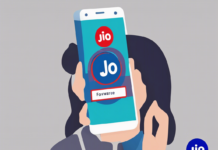Introduction
In today’s digital age, where information can be easily disseminated and shared, individuals often find themselves at risk of having their private content leaked without their consent. One such recent incident involved popular social media influencer, Imaubreykeys, whose private content was leaked online, sparking widespread controversy and debates. In this article, we delve into the implications and repercussions of such leaks, the ethical considerations surrounding privacy, and the steps individuals can take to protect themselves online.
The Rise of Online Influencers
In recent years, the rise of social media has given birth to a new breed of celebrities known as influencers. These individuals leverage their online presence to cultivate a loyal following and establish themselves as authorities in specific niches. With millions of followers across various platforms, influencers hold considerable sway over their audiences, making them prime targets for both adulation and scrutiny.
Imaubreykeys: The Influencer in Question
Imaubreykeys is a prominent social media influencer known for her vibrant personality, engaging content, and fashion sense. With a sizable following on platforms like Instagram, TikTok, and YouTube, she has amassed a dedicated fan base that eagerly consumes her posts and updates. However, her online presence came under threat when private content, including intimate photos and personal messages, were leaked online without her consent.
The Impact of Content Leaks
The unauthorized leaking of private content can have devastating consequences for individuals, particularly public figures like influencers. Beyond the violation of privacy, content leaks can lead to reputational damage, mental distress, and even legal implications. In the case of Imaubreykeys, the leaked content circulated rapidly across social media, drawing attention from both supporters and critics.
The Legal and Ethical Ramifications
The leaking of private content raises critical legal and ethical questions concerning privacy rights, consent, and online responsibility. While laws vary from jurisdiction to jurisdiction, the unauthorized sharing of intimate content can constitute a violation of privacy laws and guidelines. Furthermore, platforms like social media networks often have strict policies against the sharing of explicit or sensitive material without consent.
Protecting Your Online Privacy
In an era where digital privacy is paramount, individuals must take proactive steps to safeguard their online presence and personal information. Here are some strategies to enhance your online privacy:
- Regularly review your privacy settings on social media platforms to control who can view your content.
- Avoid sharing sensitive information or content that you would not want to be made public.
- Enable two-factor authentication on your online accounts to prevent unauthorized access.
- Use strong, unique passwords for each online account to minimize the risk of hacking.
- Consider investing in cybersecurity tools such as antivirus software and virtual private networks (VPNs) to secure your online activities.
Responding to Content Leaks
If you find yourself in a situation where your private content has been leaked online, it is essential to act swiftly and decisively. Here are some steps you can take to address content leaks effectively:
- Report the unauthorized content to the platform where it is being shared and request its removal.
- Reach out to legal professionals specializing in privacy rights to explore potential legal actions against the individuals responsible for the leak.
- Inform your followers and audience about the unauthorized dissemination of content and clarify any misconceptions or falsehoods.
- Prioritize your mental and emotional well-being by seeking support from trusted friends, family members, or mental health professionals.
Frequently Asked Questions (FAQs)
- What should I do if my private content is leaked online?
-
If your private content is leaked online, immediately report the issue to the platform and consider seeking legal advice.
-
Can I take legal action against individuals who leak my private content?
-
Yes, you may have legal recourse against individuals who leak your private content, as it can constitute a violation of privacy laws.
-
How can I prevent content leaks in the future?
-
To prevent content leaks, be cautious about what you share online, review your privacy settings regularly, and implement strong security measures.
-
What are the psychological effects of having private content leaked?
-
The leaking of private content can have severe psychological effects, including anxiety, depression, and feelings of violation and betrayal.
-
Is there a way to remove leaked content from the internet permanently?
- While it may be challenging to remove leaked content entirely from the internet, swift action and legal interventions can help minimize its spread and visibility.
In conclusion, the leaking of private content, as exemplified by the case of Imaubreykeys, underscores the importance of digital privacy and online security in today’s interconnected world. By understanding the implications of content leaks, adopting proactive privacy measures, and seeking appropriate support in times of crisis, individuals can mitigate the risks associated with online exposure and protect their personal information from unauthorized dissemination.








